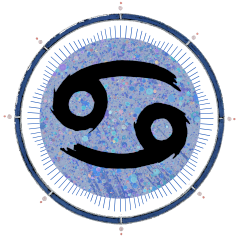Dear Planet Waves Subscriber:
The other day I got curious about the term ‘self-actualization’, which I hadn’t heard for years. The first time I encountered it as a kid (in the ’70s, when people seemed to talk about this stuff more than we do today) I intuitively knew what it meant. To me, it was about the process of becoming real, that is, of becoming fully human.

When I looked it up, I learned the term was invented by Kurt Goldstein (1878-1965), a German neurologist and psychiatrist. Kurt was one of the first theorists in the Gestalt Therapy movement, and one of the original modern holistic thinkers. His clinical work involved studying the relationship between the mind and the brain, in brain trauma patients; Gestalt puts emphasis on the mind-body connection. Holistic theories emphasize unity and integration as expressed through our natural human tendency to grow and mature.
It was Abraham Maslow (1908-1970) who put the concept into popular language. It was at the top of his famous ‘hierarchy of needs’, that pyramid published in a 1943 paper that you had to memorize in psych class. It starts with basic biological needs beginning with touch, food, breathing and sex as the foundation of existence. It extends upward toward safety, love, belonging, self-esteem and finally, at the top, we have self-actualization. This includes creativity, spontaneity, problem solving, acceptance of facts, and morality.
I will take an editor’s liberty and update that last one to ‘ethics’, since this applies a more flexible approach to difficult questions. I will add mortality, since that’s a key element in consciousness of one’s full humanity. And I would check one other thing: these days it takes a good bit of creativity and problem solving (an advanced need, in his theory) to meet the fundamental needs at the bottom level. We can at least thank Maslow for getting the term self-actualization into our hands, and for reminding us that psychology starts with biology.
He had one other idea that I like: if you want to understand how healthy people function, study them, and not pathological cases. So that is what he did.

Maslow also emphasized the innate curiosity in humans (which is true for nearly every other animal, by the way). He honored self-actualization as a drive or motivation that he believed fuelled all our other endeavors. For him, it was the prime mover — this, not survival. Maslow’s concept was about embracing human potential, and he was one of the fathers of a movement by that name.
Which brings me to the extraordinary astrology of June 2010: the Jupiter-Uranus conjunction in Aries. If any aspect says self-actualization, this is the one. The ‘self’ piece is Aries, the sign of ‘I am’, the key that turns the ignition of consciousness. We each have Aries in our chart somewhere, and where we have it is one zone where we tend to be driven by self-actualization: to waking up and being real.
Jupiter is a planet that is rich with potential. It’s like this cosmic bank account we have, from which we can draw down wisdom and envision wider possibilities. Where Jupiter is we seek expansion and learning; we seek to enrich our minds. And as I write, Jupiter is heading for Aries, where it will arrive on June 6. Jupiter comes back to Aries every 12 years. The energy feels like the Chinese Year of the Dragon: vibrant and daring.
Uranus is a planet that likes to precipitate potential; its job is to actualize. If spontaneity and curiosity are part of being self-actualized, then Uranus is the spark plug. It doesn’t really care what it takes or what has to happen to make something real. Uranus follows no special rules, which is why it’s involved in changing the known order of reality. That includes leaps forward in creativity, thought and imagination; with inventions; and with revolutions of various kinds. Uranus, which has an 84-year orbit, arrives in Aries on May 27, resetting its cosmic cycle.
On June 8, the two form an exact conjunction on something called the Aries Point. This is the first degree of the Western zodiac, which begins with the sign Aries. It’s the position of the Sun on the first day of [Northern Hemisphere] spring, and it’s also called the vernal point. It acts just like a focus of energy that links up what we think of as the ‘personal’ realm and the ‘collective’ realm. When we experience events that are on the Aries Point (such as this conjunction) or square or opposite the Aries Point, the world seems to go wild, and we can get drawn into the drama. Big events, which often seem negative, can involve this point — for example, the Sept. 11 incident or the Asian tsunami; or Woodstock, or the Moon landing. It is one of the most predictable things in a chart, in terms of this kind of response in physical reality. In a word, it is big.

In recent years we’ve had a lot of Aries Point activity, and we’re about to have more. Recent events include Pluto ingressing Capricorn (square the Aries Point) and Saturn in the process of changing signs to Libra (opposite the Aries Point). This has already stirred up a lot of energy: lately (however you define lately) it’s been one jarring event after the next trying to get our attention. And now the Aries Point activity shows up directly in Aries, as these two mighty factors align directly in the first degree of the zodiac. While that first degree has the ‘political as personal’ feeling, that nexus of individual and collective life, it’s also about personal awakening.
There’s a method of astrology that gives a visual symbol to each of the 360 degrees of the zodiac. These are called the Sabian symbols, and if you’re new to astrology I invite you to check out this gift. My favorite version is in an easily available book called An Astrological Madala by Dane Rudhyar. The degrees were channeled randomly by a clairvoyant working with an astrologer, such that the symbol for each degree was channeled without the clairvoyant knowing which degree she was channeling, and in random order. The first degree of the zodiac came out with the symbol: A woman just risen from the sea. A seal is embracing her.
This image evokes the birth of Venus, and the emergence of humanity from the sea of life, or the sea, literally. It implies individual awareness distinguishing itself from the unconscious, or the mind’s awareness emerging from the emotions. The implication is that the sentient environment that surrounds us (such as a seal) is waiting for us when we arrive on the planet.
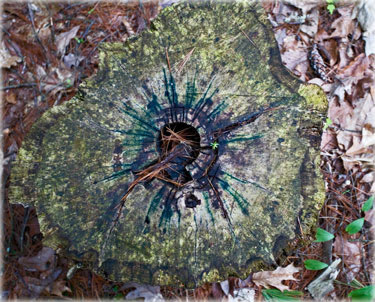
More than this symbol is behind the obvious power of the Aries Point, though I think it’s a great illustration of its potential — and that potential is what the Jupiter-Uranus conjunction is helping us make real, right now. It’s doing so in the midst of a world that once again seems to be spinning off its axis. In a Mercury retrograde that spans between early April and late May (including all the prep and follow-up phases of process), we got a glimpse into how fragile the world is, and how closely connected its levels of reality are.
In those few weeks (counting only up until publication time) we experienced a volcano that disrupted air traffic across Scandinavia and Europe, which effect rippled out across the planet, rearranging lives and stranding people in remote parts of the world; an undersea oil volcano (still out of control, with no end in sight, compounded by hundreds of thousands of gallons of grease-dissolving solvent being dumped into the Gulf of Mexico), a bitterly fought election in the UK, massive flooding in Tennessee and other states, tornadoes in Oklahoma, banking fraud by Goldman Sachs exposed (which demonstrated that they helped orchestrate the recession, for profit), a debt crisis flooding across Europe with a trillion euro bailout committed to during the retrograde!, a 1,000-point dive in the stock market that nobody can figure out, and an attempted terrorist attack in New York City. After spending nearly a trillion dollars on wars in Afghanistan and Iraq, the new al Qaeda we’re supposed to worry about turns out to be our old friend Pakistan.
These events all have that Aries Point feeling — and we haven’t even reached the conjunction yet. Which brings me back to self-actualization. These are all wake-up calls. They are the public version: we are getting plenty of them in our personal lives as well, and I’m here to tell you there are many connections, all of which are guiding us to take a unified view of existence. And by some accounts this is starting to happen; though there are many signs of slumber, there are many other signs of awakening.
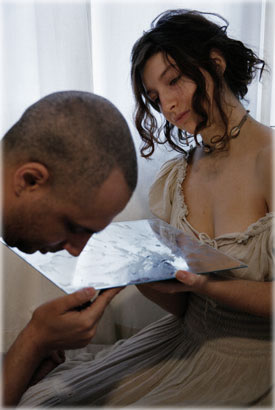
I have a few ideas for what we can actually do, if we want to facilitate the process of self-actualization.
1. Know thyself. Part of getting to know yourself may involve admitting you don’t know yourself. I suggest you open up, allow or invite your curiosity about your true work, your authentic sexual and relational orientation, and other information about what you think you’re doing on the planet at this time. If you haven’t already figured out that this is an extraordinary and unusual time to be alive, keep getting to know thyself. This includes knowing what you want.
2. Relationship starts with self. Our relationship to our self , which is existence, is what we see animated and expressed in our relationships with others. Therefore, cultivate a deeper relationship with your self. You can discover, through this, how many different levels you exist on. Dreams are a meaningful, helpful and easy way to tap into what is sometimes called the unconscious. They always have a message for us, and usually that message presents a solution to a challenge, or a window into who we really are.
3. Relationship is the foundation of community. Part of what is holding humanity back at this time is a need to rethink our fundamental bonds with others, which are the basic patterns of existence that ripple out into the world. Most literate people know that there are a great diversity of ways to explore relationships — but we tend to limit ourselves to a very few. Exploring outside orthodox modes of relationship helps us weave community and have a more complex sense of who we are, and what we mean to others and what they mean to us. Get to know your neighbors, including the critters and the businesses that are near your home. If you love someone, give yourself permission to love them, no matter what the ‘rules’ say you should do. Learn how not to be a slave to guilt, but rather one who lives in service of love.
4. Know what you eat. A revolution is underway on the meaning of food. As we reach the end of the petroleum supply, all of our concepts of food and the production of food will need to be rearranged, and even as we’re blitzed by hamburger ads, we’re well into this process. Most of what is called food is neither nourishing nor sustainable, and it’s nearly all made from or with petroleum. The first step in the process of change is getting to know exactly what you’re eating, whatever it happens to be at the time — including knowing who produces it.
5. Know your body’s special needs, including nutritional needs. Every specimen of humanity is different, and you need to know the ways in which you’re different. This includes discerning food sensitivities, knowing the way you’re influenced by your environment, and how your physical nature influences your psychology.
6. Know your technology. We live in a haze of technology but we are largely ignorant of how it works, what we can really do with it, and its effect on our minds and bodies. For the most part we don’t understand the power we hold in our hands. Make sure that you are in the creative role; that you are creating your technology rather than letting it create you.
7. Be yourself. We humans tend to spend a lot of energy trying to convince people of what we are, which gets in the way of being who we are. Save your time, money and soul and simply be yourself, tell the truth and notice the results that you get, in the long run as well as the short.
8. Life is a camping trip. We are visitors on this planet, and though it’s our temporary home, we live at the mercy of the environment. Remember that in a sense you are always outside, always in relationship to your surroundings.
9. Choose what you want. You know what you want — and remember that the power to decide is one of our few true freedoms. To do this you will likely have to understand the nature of guilt, which sends you the opposite signal. Guilt and desire are mutually exclusive.
10. Your actions have consequences, and our actions as humanity have consequences. We have lived for a long time thinking that they do not. Karma is really as simple as being aware of your participation in the experience of cause and effect.
11. Keep your vibration high. World events, by accident or design, are having the effect of lowering the vibration of many people, even if they’re not addicted to negativity. It may be challenging to both maintain awareness of world events and keep a positive focus despite them, but welcome to the greatest challenge of our moment. As big as any problem seems, global or individual, our potential is infinitely higher, and the way we get there is by feeling good, aware and embracing of our true desire.
Yours & truly,
![]()
We Must Stop Playing Small
| Political Waves
I regret to inform you that we have now officially entered the campaign season of 2010. If you do not follow politics, even deliberately avoid them, you may shrug and say, “So what?” The ‘what’ is an increase in rhetoric, posture and promise high pitched enough to make one wince. As we’re only a week or two into the season, we have yet to notice the change in tempo. With so many dire national predicaments on so many levels, candidates sniping at each other seems small potatoes. The decibels are sure to rise.
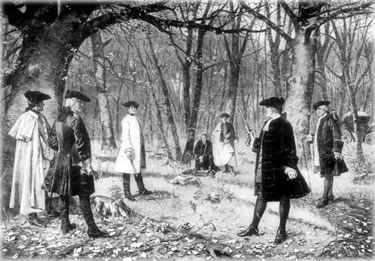
So what if Florida Governor Charlie Crist made the mistake of giving Obama a man-hug and had to bail out of the Republican Party to run for the Senate as an Independent? So what if Senator Bob Bennett in Utah lost his primary challenge because he dared cross the aisle to work toward a bipartisan health care reform bill? So what if the Governor of Arkansas had to change his position on evolution in order to stay in the race?
As we prepare ourselves for campaign shenanigans and bemoan the lack of civility in our nation, historians remind us that American politics have always looked this way. Some cite the infamous duel between Vice President Aaron Burr and Treasury Secretary Alexander Hamilton, a bit over two hundred years ago. Burr had made ‘scurrilous’ remarks about Hamilton, and the tit/tats escalated into a shootout that ended Hamilton’s life and Burr’s political career.
Can you imagine Joe Biden meeting Tim Geithner on the Boston Common today, dueling to the death over a personal slur? If I could resurrect Mr. Hamilton and bring him up to speed, perhaps he could tell me if an ‘honorable’ end is preferable to the Swiftboaters’ psychic death-by-a-thousand-cuts that ended the career of paraplegic Senator Max Cleland and blunted the considerable influence of Senator John Kerry.
Half a century after the Hamilton-Burr duel, politics had lost even more civility. Martin Scorcese’s 2002 epic, Gangs of New York, gave us a look at the politics of Bowery Boys, Dead Rabbits and Tammany Hall in the 1840s. Historians agree that while Scorsese took liberties with details and the bloody showdowns at Five Points weren’t quite as brutal as depicted, the facts were essentialy accurate. The gangs referenced in Scorcese’s title were called political clubs, volatile and armed. Bill ‘The Butcher’ Cutting leader of the Natives, famously carried hatchets and used them with impunity. Politics is power, and nothing much has changed through the centuries.
So what? Politics can turn deadly, as they did for Lincoln, Garfield, McKinley and Kennedy. Well over half a million Americans lost their lives in the Civil War, a political struggle born of economic as well as cultural schisms. As the thin veneer of civilized dialogue wears thin, we should remind ourselves that these events happened not so very long ago.
While emergencies blindside us, political radicalism expands. With so much on our national plate already, another election cycle begins with the voices too loud and the accusations too overblown. In knee-jerk response, local electorates will choose the inexperienced over the experienced, the cultural conservatives over the moderate, and political purity over the ability to compromise. We are in a partisan lock, the civil among us chastened for not playing hardball. We are panicked by the prospect that things will get worse without examining how they came to be, and we’re determined to punish somebody for our outrageous circumstances. We’re playing a small and mean-spirited game.
While government struggles to right itself, the conservative meme that it is too big and too inept has taken hold. Individual states initiate frivolous lawsuits against government policy, with over 30 attempting to limit the restructure of health care law. In Utah and Oklahoma, a woman’s right to choose has become almost nonexistent, despite federal law. Arizona has legislated against teaching ethnic studies, and Tennessee is poised on requiring hard proof of citizenship at the polls. State governors openly discuss secession. These “united” states have the vicious unity of stray cats in a bag.
Human nature works against us as we enter this election year. What we fear has become the totality of our conversation, limiting our ability to sit down together for a civil exchange on strategy and policy. Obama is the exception, undaunted in pushing ahead bits and pieces of reform. In a less extreme political season I suspect we’d like him better. Because it’s not his style, we’re spared the hubristic stagecraft that gave us events like George Bush declaring ‘victory’ in flightsuit and codpiece. Yet the liberals could have used a few more skyrockets these last months, to celebrate some impressive ‘firsts.’
Earlier this spring we succeeded in regulating health insurance providers and extending benefits to millions who have gone without health care. This week we passed a bill to audit the Fed and scour their books for the missing trillion dollars that has gone into secret loans. Imagine that — we have broken through the big power barrier that is the Federal Reserve! Now the oil companies are under intense scrutiny and regulations are forthcoming. The dark secrets of unregulated power are spilling out and the back-peddling has begun.
We remain too focused on all that’s wrong to celebrate our victories or count them as gain. Half of us want big change now, FDR style. The other half want a return to the Shining City on the Hill that Ronnie Reagan promised. If the Democrats are too disgruntled by slow and difficult progress to go to the polls, the Baggers and Republicans will change the makeup of our Congress, and a very uncivil war will begin in earnest. If that happens, we’ll become the kind of people they would have recognized at Five Points, weapons in hand and prepared to win by any brutal means available.
It’s election year and you’ll hear it all before this is over. Arm yourself with solutions, not finger-pointing. Welcome a discussion, avoid a shouting match. Don’t blame, propose. Dwell on commonalities, not divisions. We simply cannot allow ourselves to become the reactive mob that some in the world suspect we are. The more tribal we become, the more the nation will fracture. This is a time to grit our teeth, leave our hatchet at home, and come to the table for civil debate and cooperation. We have mutual problems to solve and we can’t solve them by playing small.
Weekly Horoscope for Friday, May 14, 2010, #816 – BY ERIC FRANCIS
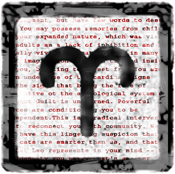
Actually I think it’s a great idea that you offer yourself a higher, more ambitious idea of love. I don’t mean more complex, though I mean more willing to invest love in growth challenges, in aspiration to being a more authentic person and in a willingness to recognize that love and passion are gestures of freedom. In the end, all of this simmers down to how you feel about yourself, which ideally is about actively valuing who you are, embracing the truth of who you are and daring to love who you are. I am aware that most of us have more complaints than we have compliments about ourselves, and that most of what we like is either conditioned, or conditional. If you go deep — and you can — you will discover what you really, truly appreciate about yourself, which exists independently of what anyone else says or does.
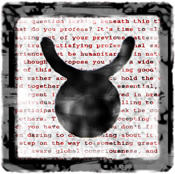
There’s only so far you can drag yourself backwards before you decide it’s time to proceed in the direction you want. You’ve struggled with a tendency to attempt serving two masters: one being yourself, and the other being some past influence that is allegedly dictating who you should be and why you should be that way. Though it seems like ‘the stronger voice will win’, in truth the voice you give the most energy to will win. As long as you try to divide your loyalty, you will divide your character and feel paralyzed. I suggest you focus on listening with precision to the voice you want to hear, and making that decision on the basis of how you feel. How will you know that you’re hearing a past voice? Simple: a familiar sense of frustration. And a more loving voice? Simple: a sense of your potential opening up.

It’s become easier to be honest with yourself. You’re in fact free to choose what to believe on the basis of truth rather than preference. What we want to be true is important; that could be described as a desire. A desire is different than what is so, now. Therefore, I suggest you work with the equation of manifesting the future in two parts: one is a clear admission of what is true in this moment; and the other being your burning desire for what you want, in this moment. If you can keep these two things discrete of one another, you will be less confused and more able to stick to a goal. Simply put, it’s easier to work toward a goal that you want than one that you don’t want, and this process will help you discern the differences between the two. At first they will be subtle — then they will be obvious.
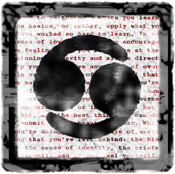
Chiron in Pisces is stretching your horizons, though for this to be meaningful you need to feel the experience rather than think about it. This is likely to be easier now that Mercury and a New Moon have eased some of the mental tension and anticipation you’ve been experiencing. The challenge you face now is to think about the future without fear. I recognize this is challenging, though at least it’s not as bad as that old Egyptian ritual where you have to walk across a playpen full of alligators; and if you’re scared, they eat you. However, the theme is the same. If you are feeling fear you will attract negativity. If you are feeling a sense of pleasure in considering what is possible, you will draw creative and loving experiences to yourself.
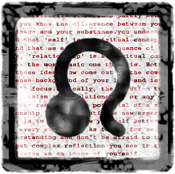
It’s time to make progress toward a longstanding career goal. You must abandon the idea that what you’ve experienced is a long sequence of delays or not-quite-good-enough and embrace the idea that you’ve been taking steps in a positive direction. This is true even if we define positive as learning what you don’t want, and how you don’t want to get it; or positive as having a chance to discern what is and is not true for you. You have all the information you need; now you need to break the large goal into at least three smaller goals, and take care of them one at a time. You can avoid mental frustration by acknowledging that every issue boils down to a question and every meaningful question can be addressed with meaningful information. This is not a game; it’s a game when questions don’t have answers.
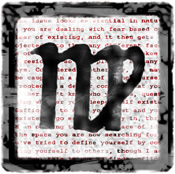
You’re starting to tap into some of the creative energy that you’ve been carving for a few weeks; or I’m here to tell you the portal is open. What I trust you’ve learned is not to judge what you’re creating while you’re doing it; stand back from the process and allow it to happen. This includes what you say, and in particular, what you say about your future plans. If nothing else, your past judgments can inform you that your criteria for ‘quality’ and ‘excellence’ are too strict, and at the very least you need to take a more compassionate view of what you’re doing. I say this not to lower the bar, but rather to offer a way that allows some of your subtler potential to come through in the form of satisfying achievement.
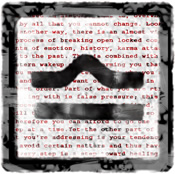
You can get your agreements onto a higher level. We’re accustomed to agreements being about money and obligation; you have the capacity to have your agreements be about a shared vision. Until recently, it seemed like there was something holding one particular agreement back, but now that factor has dissolved. You might ask yourself: where did it go? When we look at things differently, we see them differently, and your new perspective emphasizes common ground rather than contrast or distinction. Note, you are the one who is leading the way by both recognizing what is possible and by demonstrating your ability to see and experience life from the viewpoint of someone you care about. The interesting thing is that contrary to popular fears, you don’t have to lose yourself in the process; more accurately, you find yourself.
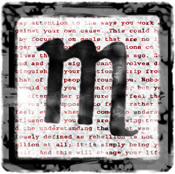
It’s taken you a long time to get to the bottom of how someone feels, and I cannot guarantee you like their opinion. The question you face is, how does this influence how you feel about yourself? This is what’s called a boundary issue, in the truest sense of the word. What feeling belongs to you and what belongs to someone else? Why is what someone else thinks, feels or believes so meaningful to you? Without knowing anything about the situation, it’s clear that there’s something about your belief in sacrifice. What do you feel you must give up in order to have what you want? Why exactly must the tradeoff be structured that particular way? I really mean this — where did you get this particularly narrow idea? Look carefully and go back a long way.
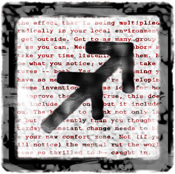
You are starting to feel it: the radical change that’s coming; the leap forward. These things don’t ‘just happen’, they gather energy and that energy is gathering now. For the next few weeks I suggest you go with the sensation of movement, and get a sense of how to surf the waves: this is not something you can do in theory; it’s only possible to do by doing. For now you’re surfing on water; in a little while you’ll be surfing on fire, your favorite element. The current energy phase is like tai chi — slow and deliberate, easily seen. The next phase is more like TV king fu. So learn the moves slowly, then prepare your mind to do them more quickly. Note, the transition itself will be quite rapid; just when you’re getting bored, something’s gonna let fly.
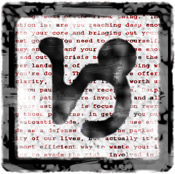
The most daring risk you can take is with your mind. You must be feeling this; it’s about what you ‘allow yourself to think’. For a while you’ve been thinking about allowing yourself to think about something, and now you’re thinking about just doing it. This is alternately called a hang-up, or seduction. I suggest you go with seduction, since it’s more fun, it’s easier and it has a more productive goal: exploration of desire. I suggest you allow yourself to do this consciously. Experiment with wanting the most daring experience you can want; the riskiest emotion; the most vivid physical sensation. I have a feeling there will be a struggle here, which is the notion that ‘it might be wrong’ or a question about whether it’s actually healthy. Going deep into this feeling is part of the journey.
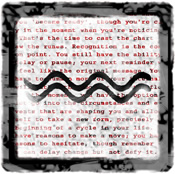
It’s time to confront this sense of what you want being dangled in front of you but somehow unavailable. Despite this being a normal condition in our world, for you it’s more complex than it seems on the surface. If the situation evokes a feeling or memory of your child self, this is veiling awareness of your adult powers. I suggest you first sort out your various adult and child responses, and figure out why you’re making the decision you’re currently making (which you can tell by what you’re actually getting) — then notice how this contrasts with what you want. I would offer some caution if you feel like you’re not confident enough to do what is right for you, or not confident enough to discern what that is; you are. I would offer caution if you think that to use your power is to abuse your power; it is not.
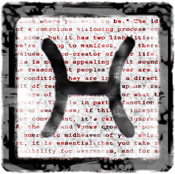
You’ve been thinking about something for a while, and you know your own mind. It’s always possible to doubt yourself — after a point, that cannot rightly be called discernment. The thing is, this decision affects the whole mirage of your mind, and reaches far into your ‘subconscious’. Relationships are involved, and you may be nursing a sense of injury there. Indeed, the question seems to focus on whether you have faith in relationships, which is another dimension of having faith in yourself. Don’t fret over this stuff; I suggest you be yourself from moment to moment. Feel what you feel and remember that you don’t need to justify yourself or make explanations: but if you want to that is another matter. The only communication that really matters right now is what you share with yourself, so share generously.



